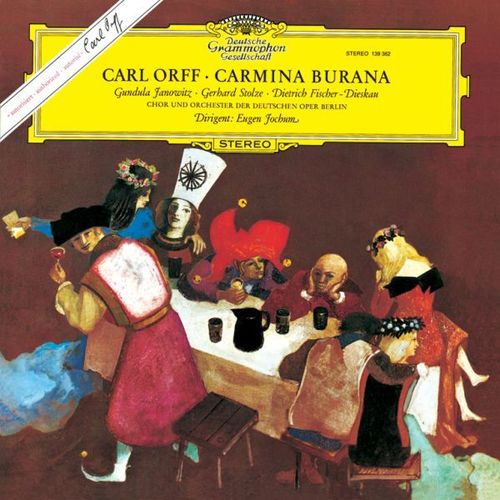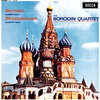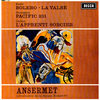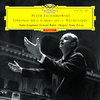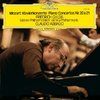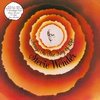AAA 100% Analogue This LP was Remastered using Pure Analogue Components Only from the Master Tapes through to the Cutting Head
Speakers Corner / Deutsche Grammophon - DGG SLPM 0139362
180 Gram Virgin Vinyl - Pressed at Pallas Germany
AAA 100% Analogue - Audiophile Mastering - Limited Edition
Speakers Corner 30 Years Pure Analogue This LP is an Entirely Analogue Production
This one is huge & if your system can take it crank it to 11 - Stereophile
Orff: “Carmina Burana”
Gundula Janowitz, Gerhard Stolze, Dietrich Fischer-Dieskau
Chorus and Orchestra of the Deutsche Oper Berlin
conducted by Eugen Jochum
The German Choir & Orchestra of Berlin conducted by Eugen Jochum and featuring soprano Gundula Janowitz, tenor, Gerhard Stolze and baritone Dietrich Fischer-Dieskau. This Limited Edition 180g LP is brought to you by the people responsible for the Decca reissue series. A sonic & musical masterpiece! A combination of the best recording & performance. Wow!
Sung by world renowned soloists and conducted by the legendary Eugen Jochum, this recording of Carl Orff's Carmina Burana was authorised by the composer himself. It follows, therefore, that the present recording met with the high requirements of the composer himself and so represents an unusual collector's item. Orff intended not just to copy the medieval lyrics but to express the mood of that era. His highly rhythmic compositional style reflects the archaic character of the vocal line. The listener experiences not only the vital primordial pulse of the music in this thrilling interpretation but also the mystery of Fate through the tender lyrical passages.
Orff's homage to wine, women and song of the Middle Ages, closely bound up with spring and love, is supported by balanced and precise sound technology. The listener is spirited away to the musical world of Carmina Burana by this recording.
This recording brings together a young cast in a performance bristling with energy. The sound is overwhelming in its impact. The secret of the overwhelming success of Carl Orff’s Carmina Burana lies in its skillful and apparently simple mixture of archaic rhythms and sounds (derived from the composer’s convictions about what ancient music must have sounded like) with the sort of music that was actually performed at medieval mystery plays.
Musicians:
Gundula Janowitz, soprano
Gerhard Stolze, tenor
Dietrich Fischer-Dieskau, baritone
Chor und Orchester der Deutschen Oper Berlin
Walter Hagen-Groll, concertmaster
Eugen Jochum, conductor
Selections:
Carl Orff (1895-1982)
Carmina Burana
1.-2. Fortuna Imperatrix
3.-5. I Primo Vere
6.-10. Uf dem anger
11.-14. Il In Taberna
15.-23. Ill Cour d'amours
24. Blanziflor et Helena
25. Fortuna Imperatrix Mundi
October 1967 in dem Ufa Studio, Berlin von Klaus Scheibe / Production: Dr. Hans Hirsch
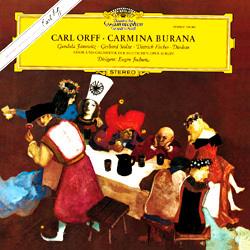
25 Years pure Analogue
Are your records completely analogue?
Yes! This we guarantee!
As a matter of principle, only analogue masters are used, and the necessary cutting delay is also analogue. All our cutting engineers use only Neumann cutting consoles, and these too are analogue. The only exception is where a recording has been made – either partly or entirely – using digital technology, but we do not have such items in our catalogue at the present time
Are your records cut from the original masters?
In our re-releases it is our aim to faithfully reproduce the original intentions of the musicians and recording engineers which, however, could not be realised at the time due to technical limitations. Faithfulness to the original is our top priority, not the interpretation of the original: there is no such thing as a “Speakers Corner Sound”. Naturally, the best results are obtained when the original master is used. Therefore we always try to locate these and use them for cutting. Should this not be possible, – because the original tape is defective or has disappeared, for example – we do accept a first-generation copy. But this remains an absolute exception for us.
Who cuts the records?
In order to obtain the most faithful reproduction of the original, we have the lacquers cut on the spot, by engineers who, on the whole, have been dealing with such tapes for many years. Some are even cut by the very same engineer who cut the original lacquers of the first release. Over the years the following engineers have been and still are working for us: Tony Hawkins, Willem Makkee, Kevin Gray, Maarten de Boer, Scott Hull, and Ray Staff, to name but a few.
At the beginning of the ‘90s, in the early days of audiophile vinyl re-releases, the reissue policy was fairly straightforward. Companies such as DCC Compact Classics, Mobile Fidelity, Classic Records and others, including of course Speakers Corner, all maintained a mutual, unwritten code of ethics: we would manufacture records sourced only from analogue tapes.
Vinyl’s newfound popularity has led many other companies to jump on the bandwagon in the hope of securing a corner of the market. Very often they are not so ethical and use every imaginable source from which to master: CDs, LPs, digital files and even MP3s.
Even some who do use an analogue tape source employ a digital delay line, a misguided ’80s and ‘90s digital technology that replaces the analogue preview head originally used to “tell” the cutter head in advance what was about to happen musically, so it could adjust the groove “pitch” (the distance between the grooves) to make room for wide dynamic swings and large low frequency excursions. Over time analogue preview heads became more rare and thus expensive.
So while the low bit rate (less resolution than a 16 bit CD) digital delay line is less expensive and easier to use than an analogue “preview head”, its use, ironically, results in lacquers cut from the low bit rate digital signal instead of from the analogue source!
Speakers Corner wishes to make clear that it produces lacquers using only original master tapes and an entirely analogue cutting system. New metal stampers used to press records are produced from that lacquer. The only exceptions are when existing metal parts are superior to new ones that might be cut, which includes our release of “Elvis is Back”, which was cut by Stan Ricker or several titles from our Philips Classics series, where were cut in the 1990s using original master tapes by Willem Makkee at the Emil Berliner Studios. In those cases we used only the original “mother” to produce new stampers.
In addition, we admit to having one digital recording in our catalogue: Alan Parsons’ “Eye in the Sky”, which was recorded digitally but mixed to analogue tape that we used to cut lacquers.
In closing, we want to insure our loyal customers that, with but a few exceptions as noted, our releases are “AAA”— analogue tape, an all analogue cutting system, and newly cut lacquers.
PALLAS
Audiophile Vinyl - Made in Germany For over 60 years the family business in the third generation of the special personal service and quality "Made by Pallas" is known worldwide. Our custom PVC formulation produces consistently high pressing quality with the lowest surface noise in the industry. Our PVC complies with 2015 European environmental standards and does not contain toxic materials such as Lead, Cadmium or Toluene. Our vinyl is both audiophile and eco-grade!
